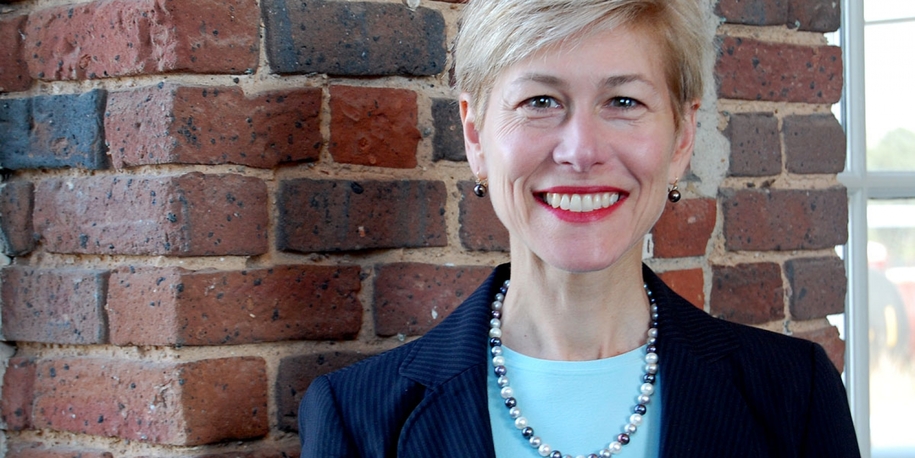>> By Deborah Ross, Former State Representative
By Deborah Ross, Former State Representative
This past year, I traveled the state talking with people about their retirement security. They shared their experiences and their fears with me. They care deeply about their families and worry about providing for their children. They want to prepare for the future, but they do not always know what steps to take.
I have listened to stories from people helping aging relatives who cannot afford to take care of their basic needs. I have talked with seniors who do not want to give up their homes and independence, but cannot afford the help they need to stay in their communities.
This problem is even more acute for women than men. According to a report from the National Institute on Retirement Security released in March of 2016, women are 80 percent more likely to be impoverished in retirement than men. This economic disparity gets even worse as women age.
It should not be surprising that women have smaller retirement nest eggs than men, but several factors that have compounded over time have made matters more difficult for your grandmother. Many women in her generation did not work outside of the home. If they did work outside of the home, they frequently were paid less than men because they were not seen as eligible for certain jobs or did not receive equal pay for their work. This made it difficult for them to accumulate retirement savings and healthy pensions. If they worked part time, they probably were not even eligible for retirement benefits. What is surprising is that women are living decades longer than they ever thought they would. What they saved and inherited from their husbands or families simply is not enough to live on for the rest of their lives.
Women today may have had more time, opportunities and resources to prepare for retirement, but they are still behind. Frequently, they are helping their parents and children at the expense of their own retirement savings. Women need to know that they are not alone. This is a growing national problem.
Here are some ideas that taken together can make a difference. First, we must stabilize the safety net of Social Security and make it more generous for people who raised families and outlive their spouse. Stabilizing Medicare without cutting health benefits is critical as well, since healthcare is a larger cost in retirement. Second, we need to expand the ways employees, including part time employees, can save for retirement and encourage employers to offer more options. This should be part of every employee’s compensation package, not just for professionals. Finally, women need equal pay for equal work. This is more than a women’s issue, it is a family issue. Every dollar a woman is denied puts her and her family behind, not just in income but in savings for the future.
We must advocate for ourselves with our elected officials and our employers. It is not too late to make a difference.
Deborah Ross is an attorney in Raleigh. She represented Wake County in the North Carolina House from 2003-2013.

Thank you!
>>Thanks for this & for your various forms of service. I’m glad you’re an optimist. I am a pragmatist. I don’t need to be an optimist to choose to go down fighting. We optimists & pragmatists gotta work together to “keep on keepin’ on”, as my Scoutmaster used to say.
>>Liberty & justice FOR ALL!
>>Bob Campbell
Lawrence KS
Wow–I am SHOCKED to find unequal pay framed as somebody’s grandmother’s problem, due to conditions way-back-when!
The Bureau of Labor Statistics says women in the US in 2014 earned 83% of what men earned–but that proportions vary by profession. (See: https://www.bls.gov/opub/ted/2016/womens-earnings-83-percent-of-mens-but-vary-by-occupation.htm )
Interestingly, the biggest difference among the 22 groups reported there was legal professions, where women made 56.7% what men made. (You should ponder this.) Also, the pay differential varies NOW according to education–and a host of reasons keeps women disproportionately from higher (and higher) education.
That women should continue to be discriminated against in their old age is disgraceful. So many of us, most, worked longer hours than the males in our generation. We were “on” 24/7, taking care of kids, old folks, our communities, our schools and when our husbands came home, we cooked dinner, folded laundry, gave kids baths, washed the dishes while he relaxed and watched TV since he was tired. The next morning, we got up before him, made breakfast and packed lunches before the rest of the family stopped rubbing sleep from their eyes.
We were paid: Nothing.
Even though the value of our labor is now being recognized as costing a fortune now that more women are in the workforce (and still paid less and expected to do most household tasks.) And the schools? the old folks? the communities? Service at all levels has dropped like a rock when we aren’t available to perform the unpaid labor.
Individual retirement benefits: None
If he died and our benefits from his S.S. or pension, were severely reduced or dropped entirely. (Meanwhile cost-of-living, medical insurance and uncovered health expenses went up yearly.)
Job security (marriage): None
If he decides after kids and 20 years of marriage some 25 year-old is cuter, he can leave, and in most cases, as is shown by the statistics: Divorced women’s standard of living goes down; divorced men’s standard of living goes up.
SO YEAH–SUCKS TO BE AN OLD WOMAN. You’ve used your life taking care of everyone else, perhaps including an infirm old husband whose needs leave you flat broke in both body and assets.
Thanks for thinking of us older women. I am 75 and still working, and it still isn’t really enough. But at least I have a job. I could quit and actually retire (for the 2nd time), but am a little afraid of the future, so I keep on “keeping on.”
With this new administration, I fear for the future of this country, not just for Social Security and Medicare.
Read Deborah’s column once again. Because it proves what many of us have been preaching all along–women better understand the problems of health, retirement, security, family, work than do men.
This is especially true of old folk like my wife and myself. I can verify that over 60 years of campaign consulting, recruiting and managing candidates, working in state government (Governor’s Office, Civil Service) that women make better, more humane, realistic, economic and compassionate decisions than do male elected officials.
Look at the present situations in our national congress and state legislature–you really believe the males controlling this mess are doing better than women could?! Not on your life and it may depend of it.
This is absolutely an issue worth raising awareness about, so I’m pleased to hear that you’re spreading the word. That’s how change begins.